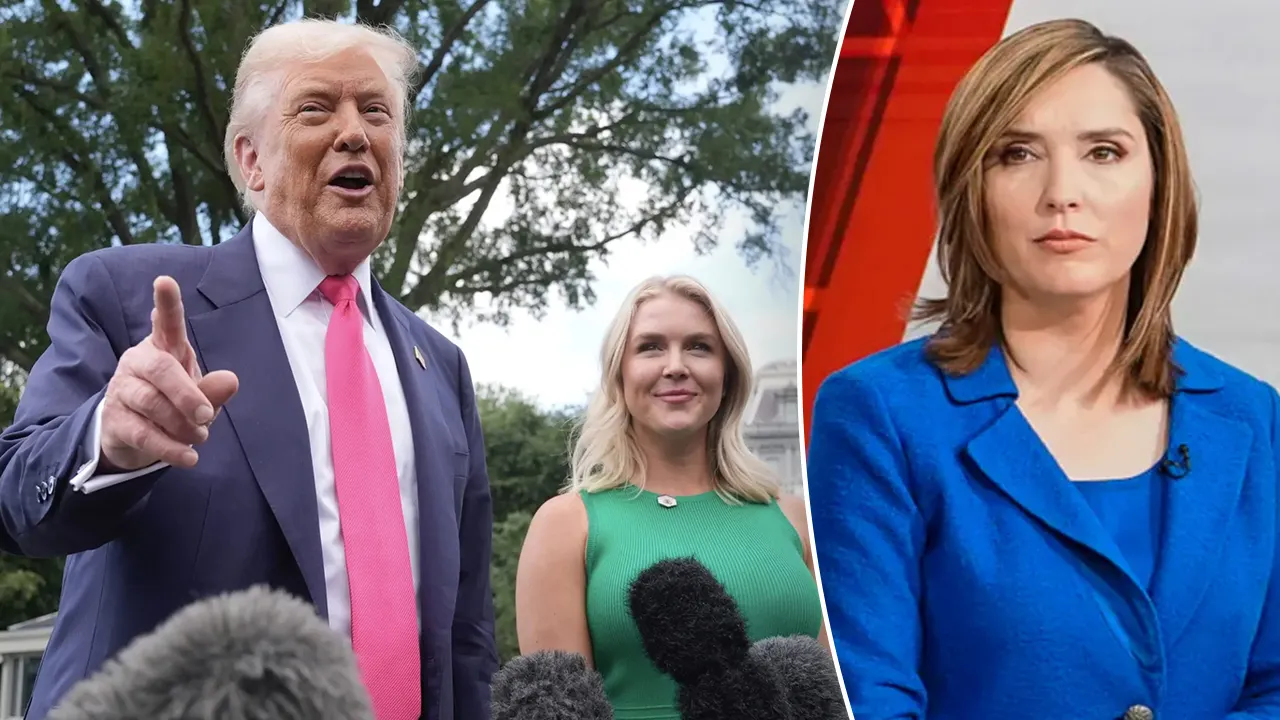In a recent interview, former President Donald Trump and White House press secretary Karoline Leavitt voiced harsh criticism of CBS News’ Margaret Brennan, moderator of “Face the Nation.” Their remarks have ignited a fresh debate about media bias and the role of journalists in political discourse. This article delves into the details of the incident, the reactions it has provoked, and the broader implications for the relationship between politicians and the press.
Brennan, a veteran journalist with a distinguished career, has often found herself in the crosshairs of political debate due to her probing interview style. The accusations of bias and the personal nature of the attacks raise questions about the increasing polarization of media and the challenges faced by journalists in maintaining neutrality. FYM News provides an in-depth look at this developing story.
Trump’s Criticism of Margaret Brennan
During an interview with the Daily Caller, Donald Trump criticized Margaret Brennan, calling her “so bad.” He also referenced his settlement with CBS’s parent company, Paramount, stemming from accusations of election interference related to a “60 Minutes” interview with then-Vice President Kamala Harris. Trump’s history of contentious relationships with media figures adds another layer to this latest critique.
Trump speculated about the future of Norah O’Donnell, another CBS News anchor, suggesting her tenure at the network might be limited. “Pay her $12 million a year, and she’s not going to be there very long,” Trump said, according to the Daily Caller. This statement underscores Trump’s tendency to publicly assess and comment on media personalities.
“The woman on the ‘Face of the Nation’ is so bad.” – Donald Trump
Karoline Leavitt’s Strong Words
When asked about her opinion of Brennan, Karoline Leavitt didn’t hold back, responding, “She’s stupid. You can put that on the record.” This blunt assessment from the White House press secretary amplifies the intensity of the criticism directed at Brennan. Leavitt’s statement further fuels the narrative of a strained relationship between the Trump camp and certain media outlets.
The directness of Leavitt’s comment is particularly noteworthy, given her position as a spokesperson for the administration. Such candid remarks often reflect a broader strategy of confronting what the administration perceives as biased or unfair media coverage.
“She’s stupid. You can put that on the record.” – Karoline Leavitt
Trump Praises Marco Rubio’s Interview
In contrast to his criticism of Brennan, Trump praised Secretary of State Marco Rubio for his handling of a recent “Face the Nation” interview. Trump noted Rubio’s frequent appearances on the show, attributing it to Rubio being “good and he’s smart.”
This comparison highlights Trump’s selective approval of media interactions, favoring those who align with his perspectives or handle challenging interviews effectively. Rubio’s ability to navigate Brennan’s questioning seemingly earned him Trump’s respect.
Marco Rubio’s Contentious Exchange with Brennan
Last month, Marco Rubio engaged in a heated exchange with Margaret Brennan regarding Trump’s meeting with Ukrainian President Volodymyr Zelenskyy and other European leaders. Brennan suggested that European leaders were present to prevent Zelenskyy from being “bullied into signing something away.”
Rubio strongly refuted this claim, stating, “That is not true, they’re not coming here tomorrow to keep Zelenskyy from being bullied.” He accused Brennan of pushing a “stupid media narrative,” underscoring the tension between the administration’s messaging and media portrayals.
“This is such a stupid media narrative.” – Marco Rubio
CBS News’ Silence
Neither Margaret Brennan nor CBS News has issued an official response to the comments made by Trump and Leavitt. This silence could be interpreted in several ways, ranging from a strategic decision to avoid further escalation to an internal assessment of the situation.
The lack of immediate reaction from CBS News leaves room for speculation and allows the narrative to be shaped by external commentary. Whether the network will address the issue in the future remains to be seen.
Implications and Broader Context
The remarks made by Trump and Leavitt reflect a pattern of skepticism and outright hostility towards certain media outlets. This dynamic has become a recurring theme in American politics, with accusations of bias and “fake news” frequently leveled against journalists and news organizations.
The incident also underscores the challenges faced by journalists in maintaining perceived neutrality while covering politically sensitive topics. The increasing polarization of media consumption further complicates this task, as audiences often seek out sources that reinforce their existing beliefs.
Conclusion
The criticism of Margaret Brennan by Donald Trump and Karoline Leavitt highlights the ongoing tensions between politicians and the media. The personal nature of the attacks and the accusations of bias raise important questions about the role of journalists in a polarized society. As the media landscape continues to evolve, navigating these challenges will be crucial for maintaining a healthy and informed public discourse.
FYM News will continue to monitor this story and provide updates as they become available, offering a balanced perspective on the evolving relationship between political figures and the press.

Leave a Reply